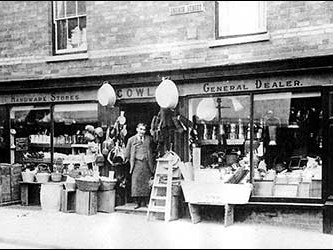 UK retail sales experienced a little increase in June, with like-for-like (LFL) sales gaining +1.9 per cent, according to fresh statistics from accountancy and business advice firm BDO.
UK retail sales experienced a little increase in June, with like-for-like (LFL) sales gaining +1.9 per cent, according to fresh statistics from accountancy and business advice firm BDO.
BDO’s latest High Street Sales Tracker revealed that the overall like-for-like sales increased by +1.9 per cent in June, compared to the previous year’s base of +8.4 per cent. LFL sales growth remains much lower than the consumer price index (CPI) inflation, implying that sales volumes have declined dramatically as consumers continue to tighten their purse strings.
BDO Head of Retail and Wholesale Sophie Michael said that this is the second month that figures have come in below inflation.
Since July 2022, like-for-like sales growth has failed to exceed the rate of inflation every month, she said.
Michael added that as the government aims to halve inflation by the end of the year through a series of interest rate hikes, discretionary spending and sales volumes are expected to decline further as households face increased mortgage and rent payments.
She said competition for consumer spending has never been more intense.
The statistics further revealed that following last month’s disappointing results, the homeware industry continued to underperform in June. Total homeware LFL sales declined by -0.6 per cent this month after falling by -8.8 per cent in the same month last year.
In-store sales did particularly poorly, declining -0.7 per cent in 2022 from a -1.9 per cent base. Total LFLs in the fashion sector increased by only 3.0 per cent in June, boosted by a 7.2 per cent increase in in-store sales due to increased high street footfall during the warm weather.
The lifestyle sector also showed a minimal increase as well, with total like-for-like increasing by +2.3 per cent month on month from a base of +6.9 per cent. This is the category’s ninth month in a row with positive LFL sales.
Michael noted that reports of insolvencies in the retail sector have recently increased significantly, reflecting the severity of the situation.
She said the retail industry was the UK’s economic engine. Urgent assistance was needed to prevent further deterioration.
To address the challenges faced by UK retailers and level the playing field with shopping destinations in Europe and beyond, Michael suggested that the government consider reinstating tax-free shopping for overseas tourists.
This policy issue has garnered significant attention, and retailers are urging the government to take action.
Michael stressed that retailers, like others in the broader consumer markets sector, are facing labour supply challenges, which have been exacerbated by post-Brexit restrictions on worker mobility.
According to her, retailers are being forced to pay higher wages in order to maintain their workers and compete for new talent in the market.
The cost increases add to the current inflationary pressures, she said.
While the Chancellor has announced certain initiatives in previous announcements to encourage parents and those who have taken early retirement to return to work, she stated that they have yet to make a meaningful impact.
The retail and wholesale head noted that while such actions may help to mitigate the negative effects, given the persistent levels of inflation on essential spending, retailers will need to continue to focus on closely managing their cost base and how best they can drive top-line revenue. Micheal said the margin between winners and losers for stores is likely to expand as the year unfolds.





